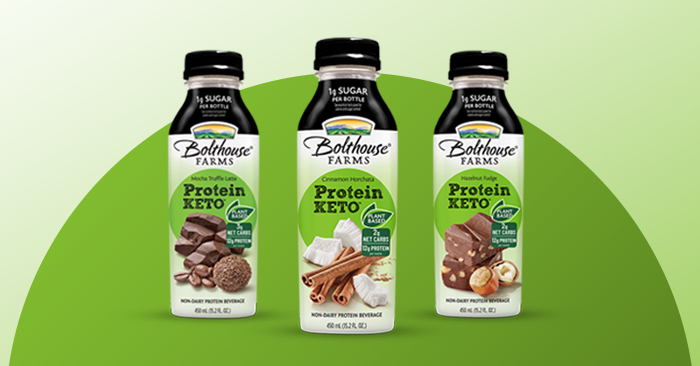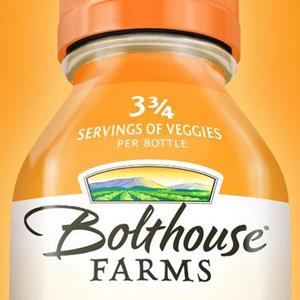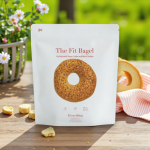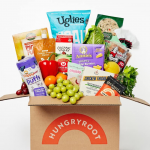From Carrot Juice to the Carrot Dog: Bolthouse Unveils Next Stage of Innovation
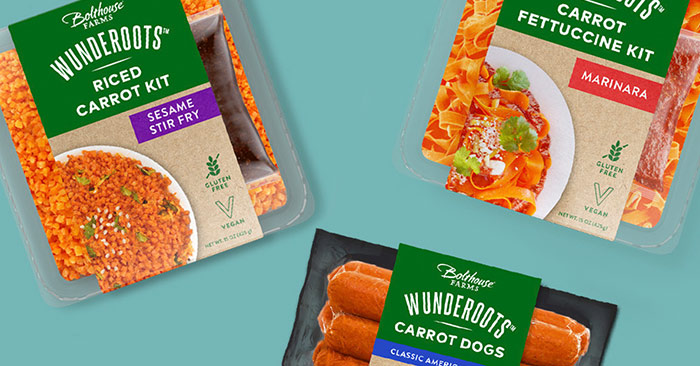
Bolthouse Farms CEO Jeff Dunn believes he’s “always been crazy,” when it comes to innovation, it’s just taken years for retailers and consumers to be excited to take the leap with him. Now once again a privately owned company with Dunn at the helm, Bolthouse is ready to let industry in on its creative musings, last week announcing the launch of new sub brand Wunderoots, a portfolio of carrot-based meal “swaps.”
And the swaps are pretty even: Carrot Dogs are an 8-pack of carrots that have been carved into the shape of a hot dog, brined and high pressure processed (HPP) for a shelf life of 60 days. With an MSRP of $4.99, the line will debut with Classic American-Style, Chorizo-style and Sweet Italian-style offerings. Wunderoots kits will offer carrots that are either carved into fettuccine “zoodles” and paired with marinara, spicy thai basil or red coconut curry sauces, or riced and packaged with sesame, green chili or yellow coconut curry sauces. Although the kits, which will retail for $4.99, have a shorter shelf life of 28 days, this is still longer than the 7-14 days of many other veggie rice and noodle kits.
Both lines debuted last week as part of the Produce Marketing Association’s (PMA) virtual Fresh Summit trade show and are expected to hit retail in Spring 2021.
The launch comes after a year of change for the company. In April 2019, Los Angeles-based private equity firm Butterfly acquired the 111-year-old Bolthouse for $510 million from The Campbell Soup Company, which had purchased the company in 2012 for $1.55 billion. The deal returned Dunn, an operating partner at Butterfly, to CEO of Bolthouse, a position he departed in 2016 to head up now-defunct beverage technology company Juicero.
Dunn said since the deal closed, there have been two “acts” in Bolthouse’s reimagining. First the company hired 130 new people — many had previously worked for the company — replacing Campbell’s employees who remained with the strategic when the company was sold. The hiring spree also filled some positions Cambell’s had left open while the deal was being negotiated, Dunn said, including bringing back Bolthouse’s former R&D team to jumpstart innovation.
The second act, he added, has been weathering the Covid-19 pandemic, keeping the business running smoothly and employees healthy. Bolthouse supplies 40% of the carrots — both fresh and as ingredients in other products — sold in North America. With the pandemic, demand surged and Bolthouse needed to react quickly to keep up.
The company responded well, Dunn said. When it was acquired from Cambell’s, Bolthouse was in decline, with a 19% drop in sales over the previous year, Dunn noted, but over the last year has seen growth every quarter, with double digit sales growth in the fourth quarter, specifically.
Now, with retailers beginning to restart formerly paused category reviews and resets, the company is ready to debut its latest products.
“We’re already in the food business… but it hasn’t been really product driven, it’s been more commodity driven,” Dunn said (Bolthouse does produce salad dressings). “This is taking our carrot business and taking a step towards our CPG business, a little more about value added and a little more branded.”
Alongside the Wunderoots launch, Bolthouse also rebranded its Snackers line, which pairs baby carrots with different seasonings and was previously only sold in educational foodservice. A line of Wunderoots Carrot Bacon is also in the works.
Dunn’s goal with Wunderoots was to create a “minimum viable product” and then bring that to retail for further development. Though some companies might hold back on wider distribution until the line is more refined, Dunn said the rise of ecommerce and the fact that consumers are shopping across channels makes this less of a viable strategy. Instead, Bolthouse will focus on finding key retailers across channels that are excited to help fine tune the line.
“Big companies historically [did] all this research to figure stuff out ahead of trying to bring it to market because there was such a cost to bring it to market. And while it’s costly, we have a different innovation strategy which [prioritizes] speed,” Dunn said. “The days of bringing a product into natural and then bringing it to regular grocery, nah. I think it moves too quickly now.”
Though Bolthouse does not sell exclusively vegan products, both Wunderoots, Snackers and its new line of Plant-Based Protein Keto beverages, which debuted in August, are part of the company’s move to go deeper into the plant-based market, targeting flexitarian consumers who want to consume more healthy, sustainable options, Dunn said.
Though Dunn believes he has always remained focused on innovation, joking that he’s “always been crazy” since his days at Coca-Cola, he now says consumers are more receptive to creative concepts, citing the rise of smartphones, the internet and online retailers as tools that have democratized healthy eating and made sharing information easier.
Still, innovation has its limits. Though plant-based meat, cheese and seafood analogues are rising in popularity, Dunn doesn’t see Bolthouse as being the company to develop these technologies. Instead, he said, it’s more of an early adopter. And while some consumers may appreciate the shorter, cleaner ingredient label of his Carrot Dog to the longer list of ingredients in a tastes-like-meat sausage, he says there’s room for both products, noting that the closer an item resembles the original, the more leeway consumers will give it.
“I think our beverage and CPG business is all migrating towards plant-based. But we are not a vegan company, I think it’s an interesting delineation… I think we should all just get over being so judgemental about each other. At the heart of it, I want [consumers] to eat healthy and sustainably with whatever choice they make,” Dunn said. “Ultimately I think every business needs to start seeing themselves through [a] sustainability lens because, the political discourse, aside, it’s real… and we have to start taking systemic action.”

